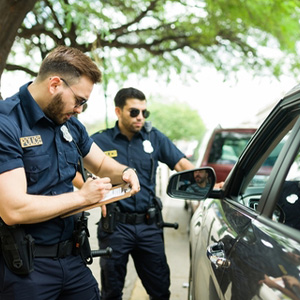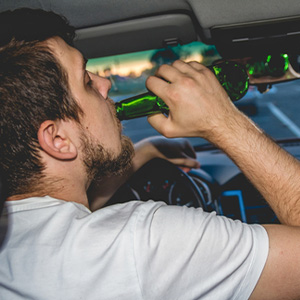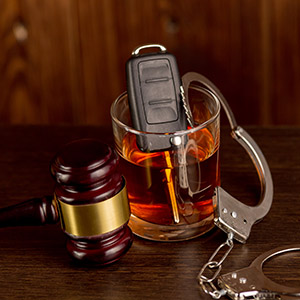
In this article, you can discover… How and when the police can search your vehicle in Texas. Whether you can legally refuse to allow the police to search your car. How to protect your legal rights and case during a vehicle search. Under What Circumstances Can Texas Police Legally Search My Car? All the police need to search your vehicle is a “probable cause" that a crime has taken place, is taking place, or is about to take place. What does that look like in real life? If you forget to use your blinker to change lanes, that could warrant a stop. Alternatively, if the cop following you is convinced you’ve got dope in your car, they’ll follow you until you make a simple mistake, like forgetting to use your blinker. Is that legal? Absolutely, and this is known as a “pretextual stop”. He stopped you under the pretext of a traffic violation, and now has the opportunity to come up to your car, sniff it for weed, or notice something else (anything else, really)…Read More

In this article, you can discover… What to bring with you to an initial consultation with a criminal defense attorney. Key questions to ask a criminal defense attorney during your first meeting. What to do next after deciding to hire a criminal defense attorney. What Paperwork Or Documentation Should I Bring To My First Meeting With A Defense Lawyer? It would be incredibly helpful to bring a valid form of government ID with you. This will allow the attorney to pull your criminal history (if you have one) and better strategize on how to help you. Please be aware that having a criminal history is nothing to be ashamed of. I’m not here to judge you, and your past won’t cause me to fight for you any less hard. As your attorney, I care about who you are, how you grew up, the people who matter most to you, what you want out of life, and where you still hurt. Those are the important things, and those are the things I really want to know…Read More

In this article, you can discover… How DWIs are charged and handled in Texas. The possible impacts of a DWI conviction on your career. How an attorney can help you mitigate the risks of a DWI charge and protect your future. Is A DWI Considered A Criminal Offense Under Texas Law? Yes. Driving While Intoxicated is either a Class B or Class A Misdemeanor, and may be a felony under certain circumstances. Driving While Impaired as a Minor is a further charge, and is a Class C Misdemeanor. At its lowest level, unless you are a minor, you will be facing a Class B Misdemeanor, and will almost certainly be arrested at the scene if the police suspect intoxication. The police will do this to err on the side of caution and get you off the road, even if your blood alcohol results come back under the legal limit. Is There A Difference Between DUI and DWI Charges In Texas? Yes. DUI is generally used if you are a minor and have any detectable quantity…Read More

A previous post outlined the five types of criminal charges that involve family violence, or domestic violence. These are: Domestic assault Aggravated domestic assault Continuous violence against the family Child abuse Stalking In this post we will discuss the potential penalties each of these criminal charges could carry. Every domestic violence case has its own unique circumstances and those circumstances determine how a case is charged and the potential criminal defense strategies. When you meet with a criminal defense lawyer, they will ask questions to help craft a defense strategy specific to your case. Domestic Assault Penalties Did the “assault” or the threat really happen? Or does the other party have a motive for or a history of lying? Was the fight one-sided or did the injury occur while the ac used was protecting themselves? Did the “victim” suffer any injury or lasting harm? These are just a few of the unique circumstances that could see impact the carges and sentencing. If the purported victim has not suffered lasting pain or harm, the charge could…Read More

Conflicts within relationships can result in the cops being called and criminal charges being filed that can turn lives and families upside down. That's especially true with any criminal conviction for domestic violence. It's important to get an experienced criminal defense attorney on the case as soon as possible. A great deal of evidence depends on people's recollection of events. What Is Domestic Violence? Domestic violence, or family violence, occurs between people who are in a relationship, whether that is a spouse or ex-spouse, a boyfriend/girlfriend or ex, parents and children, foster family members, adopted family members, or roommates. The existence of a close relationship is what puts these conflicts into in a special category. There are five criminal charges that cover different forms of family violence: Domestic assault (Penal Code § 22.01) Aggravated domestic assault (Penal Code § 22.02) Continuous violence against the family (Penal Code § 25.11) Child abuse (Family Code § 261.001 and various penal codes) Stalking (Penal Code § 42.072) Domestic assault charges are brought when someone complains of physical contact…Read More

In Texas, it's illegal to buy, sell, grow, or possess marijuana unless you are authorized to do so for medical purposes. That also applies to THC oil and dabs, a concentrated and more potent form of cannabis. What many people don't know is that it's also illegal to possession the drug paraphernalia required to smoke or ingest these forms of cannabis: A dab rig, e-rig, e-cigarette, vaporizer, or vape pen. Of course, a lot of people use e-cigarettes, or vape pens, for things other than cannabis. The criminal charge for possession of drug paraphernalia is usually an additional charge, on top of the original criminal charge of sale or possession of cannabis, THC oil or dabs. Depending on the criminal charge, the consequences can range from a fine to years in jail. A charge of possession or use of drug paraphernalia is usually a Class C misdemeanor with a fine up to $500. A charge of intent or attempting to deliver drug paraphernalia can be a Class A misdemeanor, with penalties of up to a…Read More

It's common for sex crime cases involving solicitation of a minor to start with a sting operation, with law enforcement officers going online and pretending to be an underage youth. That's what happened in 2019 when 41-year-old police detective Darrick Dunn played the role of a teen boy on the dating app Grindr and struck up a conversation with a 39-year-old Texas teacher. Dunn made the proposition, asking if the man was looking for “something” tonight. When the teacher asked his age, Dunn said “under 18.” Seventeen is the age of consent in Texas. Dunn's mark continued to ask about his age and eventually Dunn said he was 14. They agreed to meet the next day, but the teacher was suspicious and asked for a voice message first. He would later write in a note that was read by his family that he knew after hearing Dunn's voice that he was an adult pretending to be a teen… that inconsistencies in the “youth's” story clued him in to the deception during that first call. In…Read More

Also Top in Drunk Driving Arrests The auto insurance website BuyAutoInsurance.com just released a report identifying the Top 10 states in the nation with the highest death rates from drunk driving. Unfortunately, the Lone Star State did not fare well. In the 3-year period of the study, from 2016 through 2018, 5,129 people died in drunk driving accidents across the state. That is a death rate of 7.76 per 100,000 residents, and actually a decline from prior years. Who was worse? Mississippi topped the list (8.77), followed by South Carolina (8.40) and New Mexico (7.94). In sheer numbers, though, Texas lost far more lives to drunk driving than any other state on the list. Florida, with a death toll of 2,947, came in a distant second. This is a Top 10 list Texas doesn't want to be on, which is why law enforcement is so aggressive at pulling over drivers they suspect are driving drunk or under the influence of drugs. Four of the Top 10 cities with the most drunk driving arrests are also…Read More

In Texas, you have a legal right to refuse to consent to a DWI test – a blood test or a breathalyzer test. Many people think that if they refuse the blood alcohol or breathalyzer test when the officer asks them on the road, and they wait to get tested later, their blood alcohol level will be lower by then. They hope it's low enough to beat the DWIcharge. (They don't realize that by refusing the test their license will automatically be suspended for 180 days if it's a first refusal, and for two years if they've refused previously.) “No Refusal” Weekends You may have seen signs on the roadway or heard it advertised on the radio: “No Refusal Weekend.” In order to reduce drunk driving accidents during times when alcohol consumption tends to be high, Texas law enforcement has created “No Refusal” periods. You will see these announced for holidays – New Year's Eve, Labor Day, 4th of July, Memorial Day, Halloween, Thanksgiving and Christmas – as well as around big events like football…Read More

Gov. Greg Abbott recently signed HB 1927 into law, making it legal on September 1, 2021, for anyone in Texas, aged 21 and over, to legally carry a handgun without getting a state license (unless they are excluded from possessing a firearm by state or federal law). A background check is still required to purchase a firearm. Handguns are the only type of gun that required state licensure. People are allowed to carry shotguns and rifles and in public places without a license. This new law does away with: The need to get a license for a handgun The requirement for up to 6 hours of training The need to take a written exam The need to demonstrate shooting proficiency Opportunities for Expungement If you were convicted of the offense of unlawful carry of a handgun (Penal Code 46.02(a)) prior to September 1, 2021, you can seek an expungement. Guns Not Allowed Everywhere Although you can carry a concealed or unconcealed weapon in many public places, there are some places where you cannot carry a…Read More